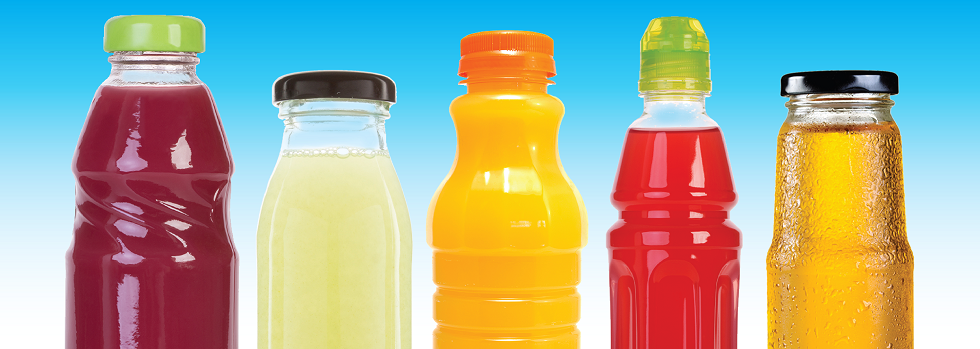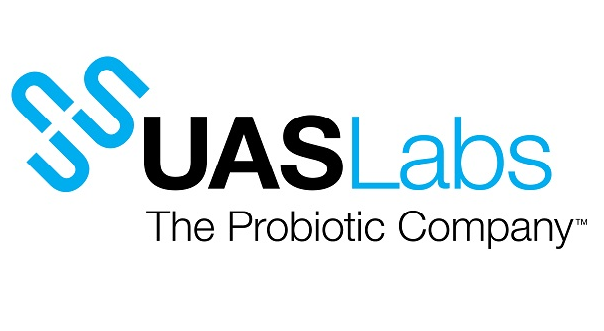Promotional Features
How Scientific Advances have enabled heart healthy probiotic beverages
Demand for probiotic juices, soy-based drinks and other beverages is taking off. After years in which the difficulty of delivering probiotics in non-dairy beverages held back growth, the sector is now emerging as a critical component of the next wave of functional products. UAS Labs’ heart healthy probiotic strain Lactobacillus reuteri NCIMB 30242 (LRC) is part of this trend.
Probiotics established their position as a mainstream health choice by colonizing the dairy aisle of supermarkets. Bacteria-enhanced yogurts and other functional dairy products were many people’s first encounter with probiotics and have come to dominate the market, which, depending on the source of the estimate, is valued in the region of $40 billion. Functional foods and drinks, not supplements, account for most of the market, and dairy products dominate the functional food and drink market.
The predominance of dairy products in the probiotic market stems, in part, from the ease with which formulators can add bacteria to such products. Some bacteria are inherently able to survive in yogurts for at least the duration of the product’s shelf life and be bioavailable to the body after consumption.
Getting bacteria into non-dairy beverages is more challenging. When probiotic dairy products first gained a foothold in Western diets, formulators were still struggling to enable bacteria to survive in beverages and have positive effects on health when consumed. Formulators have since overcome these challenges, leading to a boom in the market for probiotic beverages.
Market research company SPINS calculated the market for refrigerated functional beverages and probiotic juices grew more than 30% in 2016. That overall figure masks explosive growth in some niches. Sales of shelf-stable water shot up 740%, albeit off the low base of $200,000. Plant-based milks and creamers also experienced triple-digit growth, with sales rising 270% over the course of the year.
Beverage brands such as PepsiCo’s Tropicana are looking to probiotics to reenergize demand for the large but declining juice market, which has suffered as consumers have sought lower-sugar alternatives. Other companies are seeking to meet the dual demands for non-dairy milk and health-enhancing products by introducing probiotic soy-based drinks.
In doing so, manufacturers of both juices and soy-based beverages can also grow their sales of higher-value products. Functional beverages account for 7% of the total drinks market in volume but generate 13% of its value, according to Zenith International. This shows the price premium such products can demand.
The data also show how much scope there is to grow the functional beverage market. Businesses such as UAS Labs – “The Probiotic Company” - are now priming the industry for such sustained growth by introducing bacteria that broaden the scope of what functional beverages can deliver.
Establishing LRC’s heart healthy status
LRC, the probiotic strain at the center of UAS Labs’ pitch to beverage manufacturers, is indicative of the direction in which the industry is moving. The strain’s original developer and current owner, Micropharma and UAS Labs, respectively, invested in a scientific program designed to establish LRC as a benefit-specific probiotic backed by data to support health claims.
This process began by screening hundreds of bacteria in search of strains with elevated activity of bile salt hydrolase. Researchers singled out this characteristic because of the role the bile salt hydrolase enzyme plays in the normal metabolism of cholesterol. Having identified LRC as a bacterial strain that produces high levels of the enzyme and has other favorable probiotic qualities, the team put it through an optimization process before advancing it into further tests.
Investigators established LRC as a heart healthy probiotic strain by running two gold-standard clinical trials. The first of these multi-site, randomized controlled clinical trials enrolled 114 people.1* Some participants consumed yogurts loaded with microencapsulated LRC twice a day. The rest followed the same regimen but consumed placebo yogurts. Researchers monitored biomarkers of cardiac health over the course of the six-week supplementation period.
The second trial enrolled 127 people and randomized them to receive either LRC in capsule form or a placebo for nine weeks.2* The primary objective of the trial was to assess changes to levels of low-density lipoprotein (LDL) cholesterol. Investigators also gathered data on other indicators of cardiac health, including measurements of apolipoprotein B, total cholesterol, non-high-density lipoprotein (non-HDL) cholesterol and the ratio of LDL to HDL.
In both studies, levels of LDL, also known as bad cholesterol, were supported at healthy levels in participants who received LRC. Researchers also found participants in the LRC arms of both trials maintained healthy levels of the other, aforementioned biomarkers of cardiac health.
The pooled data suggest LRC can play a role in supporting the body’s natural ability to help maintain cholesterol levels already within the normal range. These conclusions have helped LRC establish itself as part of the toolkit of some cardiologists. When more than 200 board-certified cardiologists were surveyed in 2015, LRC emerged as their preferred probiotic.
While LRC has established itself on the strength of its heart healthy status, research has also linked the strain to positive outcomes beyond cardiology. A gastrointestinal symptom survey included in one of the trials determined that LRC supported digestive health, suggesting it has properties typical of probiotics in general. The clinical trial program also linked LRC to a very interesting finding of supporting healthy levels of circulating vitamin D.
Testing the shelf life of LRC
With the clinical trials suggesting Micropharma and UAS Labs had successfully identified a heart healthy probiotic strain, the focus shifted on to exploring applications for LRC. The clinical trials and subsequent studies showed LRC is suitable for freeze-drying into capsules and formulating into yogurts but UAS Labs also wanted to assess the viability of adding it to fruit juices and soy-based beverages.
These products pose major, distinct challenges to probiotics. At low pH levels, the concentration of undissociated organic acids in fermented products increases. These acids kill bacteria, resulting in the amount of probiotic declining over the shelf life of low pH products. Fruit juices have low pH values. Resistance to the effect of such acidic conditions varies considerably from strain to strain.
Soy-based beverages, in contrast, have alkaline pH values. These present different challenges to formulators who want to add a probiotic strain and ensure enough of it survives to have an effect on consumers.
Research suggests LRC copes similarly well with the contrasting environments found in fruit juices and soy-based beverages. When LRC was formulated into a fruit juice with a starting pH of 3.9, the level of bacteria in the drink only declined slightly over 60 days. The result suggested LRC is hardy enough to be a commercially-viable addition to fruit juices.
Data from soy-based beverages loaded with LRC were even more encouraging. Levels of LRC stayed virtually constant over the course of the 60-day study.
The studies also looked at the viability of LRC when formulated into drinks and kept at either 4 or 8 degrees Celsius (39 or 46 Fahrenheit). The storage temperature had minimal effect on the levels of LRC that survived in either the juice drink or soy-based beverage. This is important considering cold chain temperature maintenance during distribution is not always respected in commercial environments.
Tests of LRC formulated into capsules and yogurts show that the strain is equally well equipped to cope once it is consumed and exposed to the conditions found in the gastrointestinal tract. Combined with the 60-day viability tests, the gastrointestinal transit results suggest LRC can survive throughout the shelf life of products and be bioavailable after it is consumed.
UAS Labs’ investment in LRC
UAS Labs has generated the data to support the use of LRC in fruit juices and soy-based beverages in anticipation of licensing the strain to manufacturers that want to bring heart healthy functional products to market.
Companies that take UAS Labs up on its offer will benefit from the investments their new partner has made in its operation and LRC over the course of its near-40 year history and, in particular, its spending over the past few years. Since being taken over by new owners in 2013, UAS Labs has invested significantly in its 45,000-square-foot manufacturing facility and R&D capabilities.
These investments have benefited the continual development of LRC. Now, beverage manufacturers have the opportunity to help drive forward the next phase in the advance of the heart healthy probiotic strain.
References
1. Jones ML, Martoni CJ, Parent M, Prakash S.: Br J Nutr. 2012;107: 1505–1513.
2. Jones ML, Martoni CJ, Prakash S.: Eur J Clin Nutr. 2012;66: 1234–1241.

